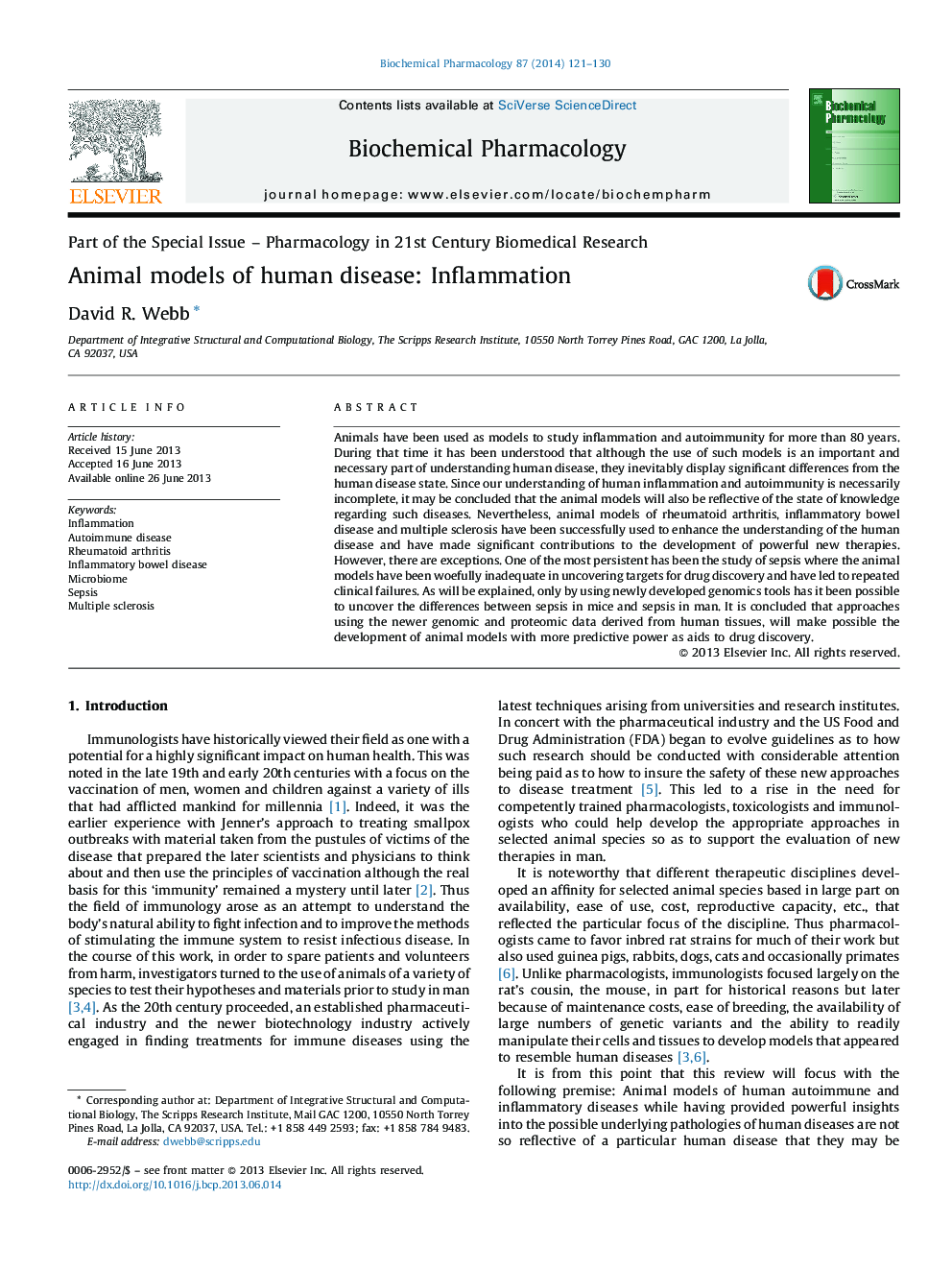| Article ID | Journal | Published Year | Pages | File Type |
|---|---|---|---|---|
| 2512416 | Biochemical Pharmacology | 2014 | 10 Pages |
Animals have been used as models to study inflammation and autoimmunity for more than 80 years. During that time it has been understood that although the use of such models is an important and necessary part of understanding human disease, they inevitably display significant differences from the human disease state. Since our understanding of human inflammation and autoimmunity is necessarily incomplete, it may be concluded that the animal models will also be reflective of the state of knowledge regarding such diseases. Nevertheless, animal models of rheumatoid arthritis, inflammatory bowel disease and multiple sclerosis have been successfully used to enhance the understanding of the human disease and have made significant contributions to the development of powerful new therapies. However, there are exceptions. One of the most persistent has been the study of sepsis where the animal models have been woefully inadequate in uncovering targets for drug discovery and have led to repeated clinical failures. As will be explained, only by using newly developed genomics tools has it been possible to uncover the differences between sepsis in mice and sepsis in man. It is concluded that approaches using the newer genomic and proteomic data derived from human tissues, will make possible the development of animal models with more predictive power as aids to drug discovery.
